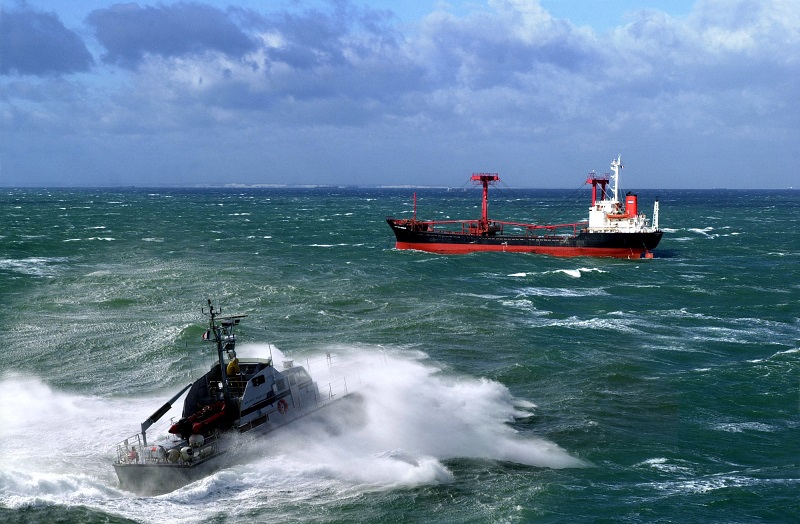David Hotte: “Make mechanisms to fight against money laundering and terrorist financing more operational”
Why focus on the financial aspects of crime and terrorism?
David Hotte – The answer is simple: behind all types of crime – drugs, weapons, human beings, cultural goods… –, there are financial flows. By identifying them and neutralising them we can fight against criminal groups and/or terrorists by limiting their operational capacity. To do so, we need to be able to trace the money that is used to finance their activities, whether or not it is of illicit origin. This is the big difference between money laundering (when money necessarily comes from a criminal activity) and terrorist financing (which, as it can sometimes come from lawful activities, makes it more difficult to detect).
What will be the priority of the AML/CFT technical assistance?
David Hotte – To help States move from theory to practice, by making mechanisms that already exist on paper more operational. The vast majority of countries have set up financial intelligence units (FIU), whose role is to collect, sometimes analyse, then disseminate financial information. It is the next part, i.e. the criminal and enforcement component, which is often less effective. For example, the obligation of a bank to report a suspicion with regard to certain transactions does not necessarily guarantee it will actually be handled by the relevant State services.
In addition, even when the information is handled, another difficulty arises: the difference in space and time between a standard criminal investigation and a financial investigation. In principle, the criminal investigation stops at the time of the arrest and/or seizure. The financial investigation is often only just beginning. To conduct it, investigators specialised in financial crime are needed as it requires specific expertise, financial analysis for example. Highly motivated people are also needed, as the investigation lasts several years.
How to overcome these difficulties?
David Hotte – To obtain results, it is necessary to raise awareness and strengthen the entire penal chain on financial issues, in terms of both training and tools: the actual collection of information, the police investigations, the production of evidence, the convictions and asset recovery. It is also important to increase coordination between the various services, both in and between States, as criminal and terrorist groups do not stop at borders.
To meet needs, we must be responsive to countries, come up with innovative solutions and react quickly. This is why we need to have a team made up of specialists – in intelligence, investigation services, justice, NGOs... – which know first-hand the operational constraints.
What role do NGOs and more generally the private sector play in the AML/CFT fight?
David Hotte – NGOs and the charitable sector are sometimes a channel used for transfers of laundered money or to finance terrorism. Certain international recommendations, such as those of the Financial Action Task Force (FATF), therefore specifically concern civil society organisations: this should both protect them and give them responsibility. The presence of an NGO specialist in the project team will be an advantage.
In addition to NGOs, private sector involvement is essential: financial intelligence units get their information from the reporting of suspicions by organisations subject to AML/CFT requirements, due to their capacity to detect potentially illicit flows (financial and non-financial professions).
The project financed by the EU is implemented by Expertise France in partnership with Member State organisations (France, UK, Italy, Germany, Denmark, Belgium). What interest does it have for the States supported?
David Hotte – This European mobilisation has both a qualitative and quantitative interest. Historically, the European Union and its Member States have a practice of supervising certain economic practices, through the development of appropriate standards and institutions: this expertise may therefore prove useful. The number of experts is also multiplied by the number of Member States. Access to national pools of public expertise will allow us to mobilise a range of professional skills in any language to meet the needs of requesting States.
What are the next stages for the project?
David Hotte – At this stage of the project, we are finishing our start-up phase, which will allow us to finalise our operational strategy. However, our technical assistance has already started in Mauritius and Tunisia, which will host an event dedicated to AML/CFT applied to human trafficking in December. In the meantime, the project will participate in the 2019 Paris Peace Forum, with the organisation of a panel discussion on 13 November on the financing of terrorism and trafficking of cultural goods.
|
• When? Wednesday 13 November, 13:00-13:45
|


 Panel discussion: “Reinforced partnerships against the trafficking of cultural goods and its use to finance terrorism”
Panel discussion: “Reinforced partnerships against the trafficking of cultural goods and its use to finance terrorism” To find out more:
To find out more: 
